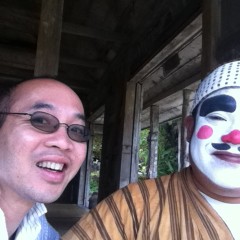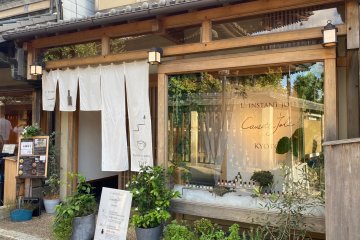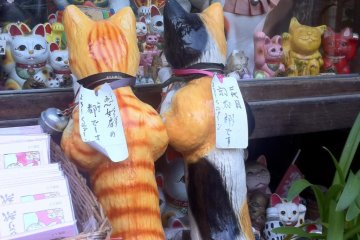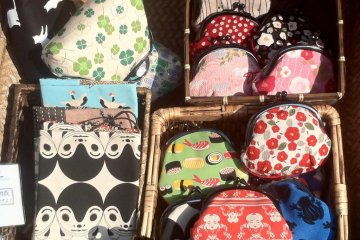Where would a Kansai girl go when she wants to experience Kyoto? Eri, a Japanese student from Osaka, shares her story from her time in Kyoto.
"My favorite route in Kyoto was to get off at Kawaramachi Hankyu train station and walk to Kiyomizu temple. I didn’t realize how long it took from Kawaramachi station to Kiyomizu temple, but I think it took at least half an hour to reach the temple. However, there were a lot of souvenir shops on either side of the street so I didn’t feel it was a long way and I enjoyed strolling.
I think spring and autumn are the best seasons to visit Kyoto, because Kyoto is quite hot in summer and cold in winter. Besides, Kyoto is a popular place for sakura (cherry blossom) in spring and for momiji (red maple leaves) in autumn.
Amongst all the famous temples in Kyoto, Kiyomizu-temple is one of the most famous. It is also quite famous for sakura and momiji. That is one of the reasons why I always go to there when friends who live in another area of Japan visit me.
After visiting Kiyomizu temple, I walk down the slope enjoying tastings of Yatshuhashi (cinnamon cookie dough). Then on the way to the station, there is a café selling delicious warabi mochi, a jelly-like confection made from bracken starch and covered or dipped in kinako (sweet toasted soybean flour). I almost always drop into the café and eat warabi mochi. It's makes a pleasant break after good exercise walking. Then I walk through Yasuka Shrine and get to the station.
Now when I am thinking about this, I miss warabi mochi more than sakura or momiji. Rice cakes (or mochi) are better than flowers. There is a Japanese saying, Hana yori dango, which means that it's better to fill your belly than your eyes.”
Sannenzaka is also a great place to observe the microcosm of Japanese Society at play. You can watch the world go past from the window of a three hundred year old tea house, and if I met up with a Kyoto person the next week, his opinion may be different. As Eri is from Osaka, the kitchen of Kansai, it was interesting to see her love of food come out.
In the film “Hankyu Railway – a Fifteen Minute Miracle”, there was a university student who loved bracken so much, she fantasized about abseiling off a railway corridor just to get a snip of her favorite bracken. If I were to tell you that bracken is a fern whose starch is used to make Japanese jelly like rice cakes, you would probably laugh. But actually the words “jelly” or “cake” don’t do any justice to how tender and delicate this confectionery is. If you are still not convinced, there are many food stalls where you can try all sorts of sweets and crackers. You’re bound to discover some warabi mochi. Some of these tea houses used to be pit stops for pilgrims, but these days the pilgrims make a much less daunting journey.
On the other hand, it is said that a Kyoto person would probably spend hours trying to decide whether to buy a sandal or a kimono handbag, or a beautiful folding fan. Being the home to many handicrafts, from paper (washi) to dolls fit for royalty, it is no wonder Kyoto people are so knowledgeable about design.
From schoolgirls to retirees, monks to punks, Sannenzaka is magnet for people all over the world. The authentic Edo-era merchant houses and restored tea houses are so picture perfect, they almost look like a film set. And indeed, if you wander off to a quiet alleyway, you may see a film shoot, especially amongst the townhouses and ryokans along Ishibeikoji.
If you are staying in a nearby hotel or ryokan, come in the early morning before the day trippers and walk the lanes in the morning light just as the shops open their shutters for the day.
There are so many things to see and do, so just like a movie, your favorite moment may be different from that of your friend. Take a look and make your own personal discovery.












